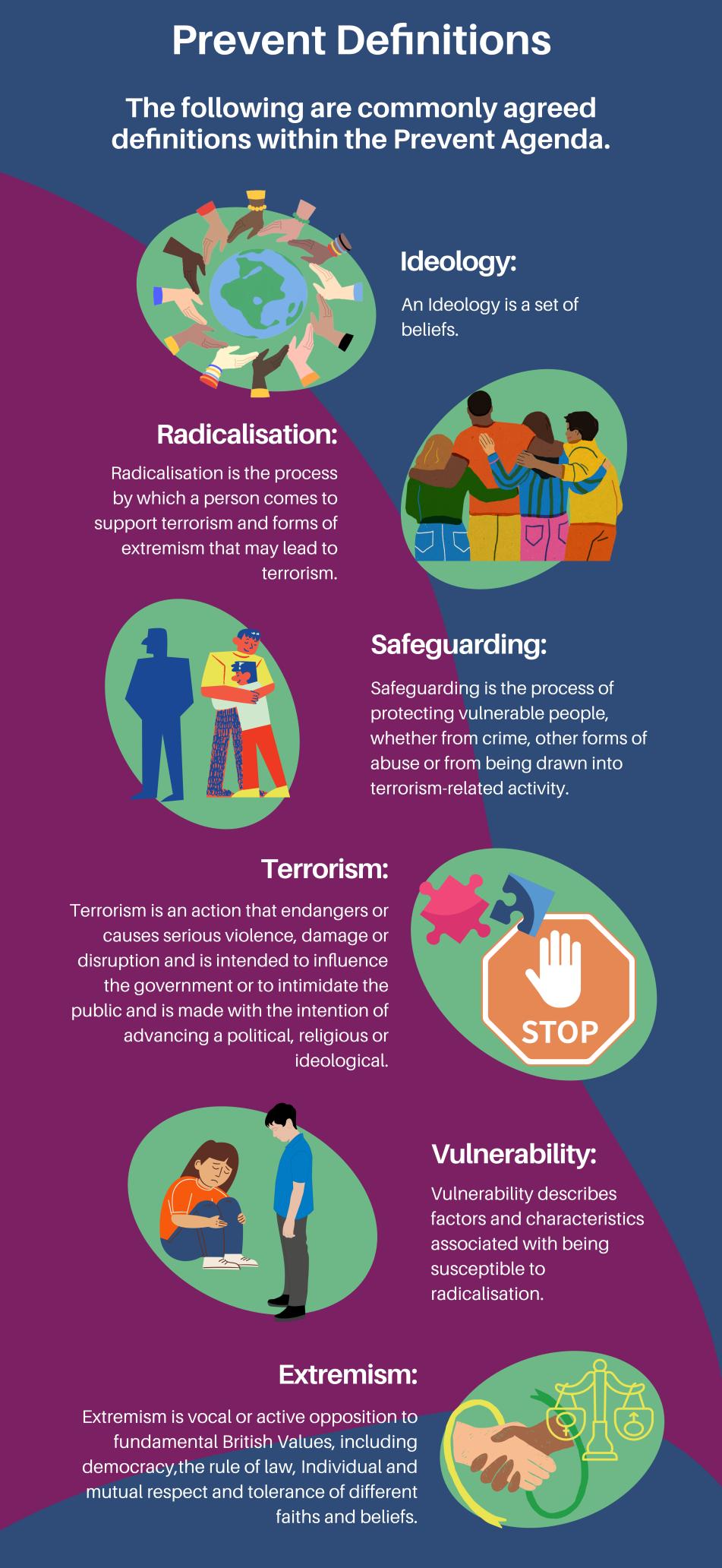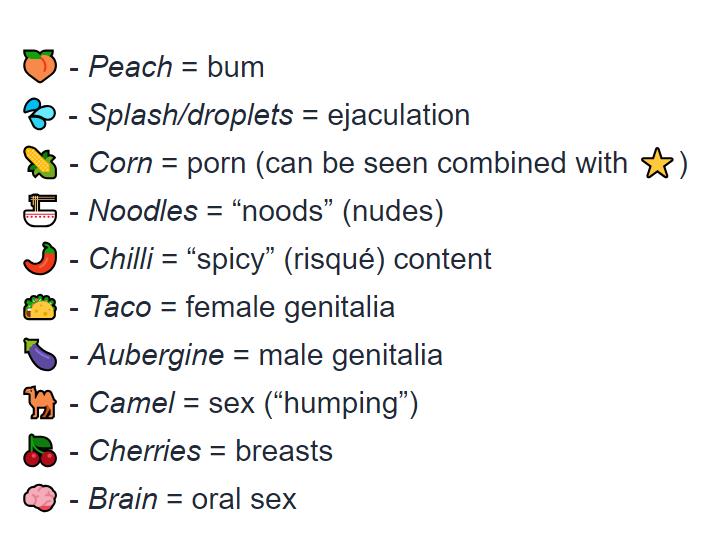
Prevent, Slang and Safer Scrolling


March 2024
Prevent Duty Guidance
To tackle the ideological causes of terrorism, Prevent focuses on reducing the influence of radicalisers on susceptible audiences, as well as reducing the availability of, and access to, terrorist content.

• In the UK, the primary domestic terrorist threat comes from Islamist terrorism. Islamist terrorism is the threat or use of violence as a means to establish a strict interpretation of an Islamic society .
• Extreme Right-Wing Terrorism describes those involved in extreme right-wing activity who use terrorist violence to further their ideology. These ideologies can be broadly characterised as Cultural Nationalism, White Nationalism and White Supremacism.
Individuals and groups may subscribe to ideological trends and ideas from more than one category.
• Established terrorist narratives exhibit common themes such as antisemitism, misogyny (Incels), anti-establishment, anti-LGBT grievances and religious or ethnic superiority. Left-Wing, Anarchist currently represents a significantly smaller terrorist threat to the UK than Islamist terrorism or Extreme Right-Wing Terrorism.
Did You Know?
Of the 234 persons in custody for terrorism connected offences in Great Britain, 65% were categorised as holding Islamist-extremist views, 27% were categorised as holding Extreme Right Wing ideologies, and the remaining 8% were categorised as holding beliefs related to other ideologies.
Further information can be found on the Governments Prevent Duty Guidance and on the NSPCC website, links are below.
Prevent Duty Guidance
Radicalisation and Child Protection, NSPCC Learning
KING'S BRUTON SAFEGUARDING NEWSLETTER

Social Media Slang
Slang is ever-changing. It is easy to dismiss slang as unimportant, but from a pastoral and safeguarding perspective, the words students use can act as red flags. Because social media apps use algorithms to stamp out certain content, emojis and slang can be used to post about banned topics or circumvent age restriction filters. Alongside this, there has been a rise in misogynistic content masquerading as aspirational or promoting “traditional family values”. As a result, much of the current slang is rooted in misogyny. So what seemingly innocuous words or emojis should we all be on the lookout for in student communications on Teams and other messaging apps, or when investigating pastoral issues? Here are some examples of emojis our pupils might be using that have a meaning beyond the obvious.
Slang

Slang will, of course, vary depending on location, but here are a few terms that have recently appeared on social media: Nyash /Bunda = Means bum/bottom.
Smash = Means to have casual sex. Thirsty = Desperate for sexual attention; “horny”. Sneaky Link = Term for someone you are hooking up with on the sly.
Seggs = Alternative spelling of sex.
Leg Booty = Refers to LGBTQ+.
Accountant = Code word for being a sex worker or Only Fans creator
Gyatt = Americanised shortened form of “God damn”, commonly used with reference to women with curvy figures. Plug = the “connect” - sometimes used to reference someone who provides drugs, weapons, stolen goods and so on. Unalive = death. Commonly used with reference to suicide to get around community guidelines. In safeguarding and pastoral care, we cannot afford to rest. We have to be constantly vigilant about the world that our pupils are living in.
• Parents and teachers need to keep having ageappropriate conversations about sexual content as children grow.
• This can include explaining what consent means, discussing how to spot online predators, and more.
• Above all, we must never shame children for asking questions - as their teacher, parent or guardian, we can be an invaluable support and guide for them, as they grow and learn.

Safer Scrolling, Algorithms and Misogyny
Research, conducted in partnership between UCL, the University of Kent and the Association of School and College Leaders (ASCL), found a fourfold increase in the level of misogynistic content in the “For You” page of TikTok accounts over just five days on the platform, in an algorithmic modelling study.
Through interviews with young people and school leaders, the researchers also found that hateful ideologies and misogynistic tropes have moved off screens and into schools, becoming embedded in mainstream youth cultures.
The report authors stress the need for a “healthy digital diet” approach to education to support young people, schools, parents and the community at large. They also say it is essential to champion the voices of young people themselves, particularly to include boys as part of discussions regarding online misogyny, and they suggest a “peer-to-peer” mentoring approach.
Read the Full Article here:
Social media algorithms amplify misogynistic content to teens
Read the Full Report here:
SAFER SCROLLING How algorithms popularise and gamify online hate and misogyny for young people








